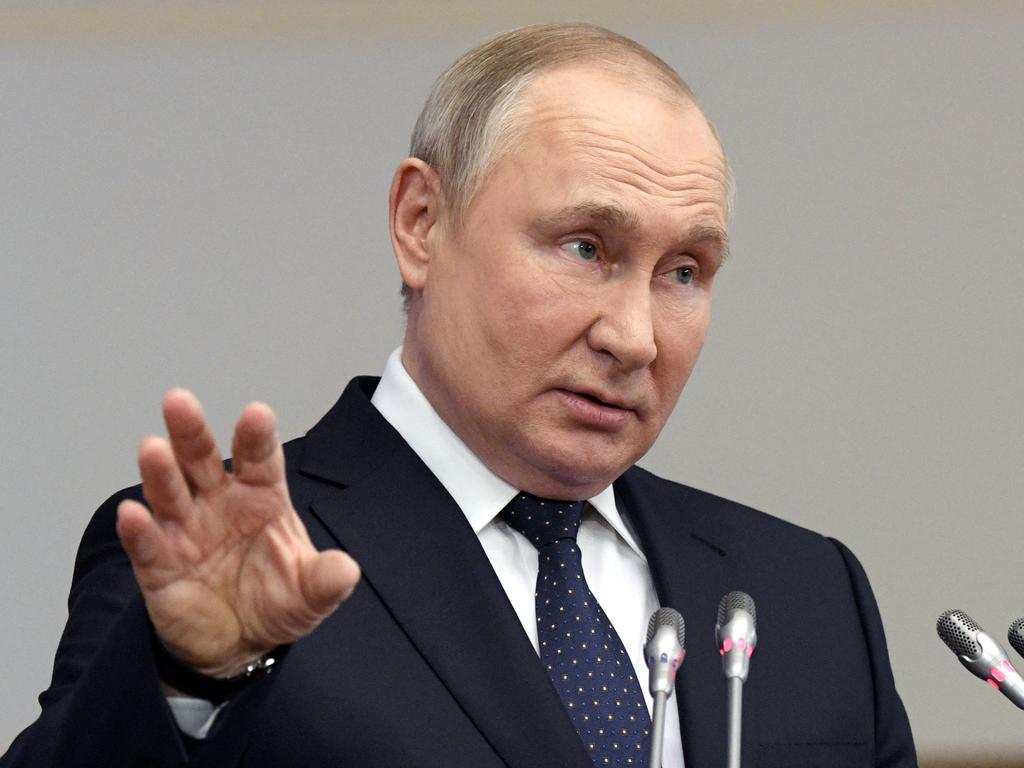How Russian aggression has shifted the balance of power in Europe
War in Ukraine, and the threat of it spreading farther afield, means the voices of central European states can no longer be ignored in Brussels.
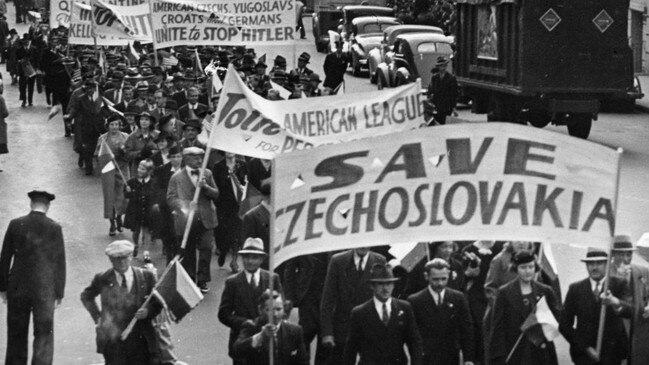
The spat was, on the face of it, only the latest in a long line of unedifying contretemps between western and central Europe. Several weeks ago, in the heat of the French election campaign, Mateusz Morawiecki, the Polish prime minister, mocked President Macron for his repeated phone calls to the Kremlin, which he likened to negotiating with Hitler, Stalin or Pol Pot.
With characteristic restraint, Macron, 44, responded by calling Morawiecki, 53, an “extreme-right antisemite who bans LGBT people” and accused him of meddling in France’s domestic politics.
This time, though, there was a difference: the balance of power between the two has swung sharply in Poland’s favour.
For many years western European leaders rolled their eyes at warnings from the Poles and their neighbours about Putin’s imperial ambitions. The old core of central Europe - Poland, Hungary, Slovakia and the Czech Republic, collectively known as the “Visegrad Four” - were regularly dismissed as a band of populist irritants and subjected to numerous disciplinary proceedings.
Now, however, even the darkest concerns about Russia have been thoroughly vindicated, and the political map of the European Union is being redrawn.
A new alliance is emerging: while Hungary has been ostracised for its inveterate appeasement of Moscow, the Poles, the Czechs and the Slovaks have joined forces with the Baltic states to push France, Germany and Brussels to take decisive action.
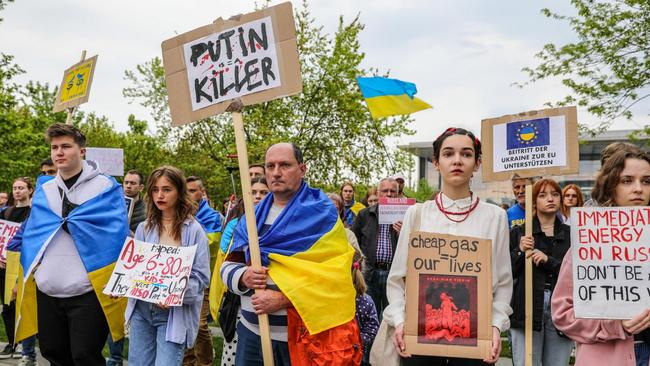
The Czech Republic was the first western state to send tanks to Ukraine, while Poland’s semi-clandestine arms deliveries have been so prolific that there is a running joke about how often equipment seems to vanish from its military warehouses. “The walls must be made of cardboard,” as one Polish analyst put it.
The three Baltic countries have led the way in unilaterally severing their imports of Russian gas and together with the Poles they have been lobbying hard for an EU-wide energy embargo on Moscow. Poland alone has taken in more than three million Ukrainian refugees, adding as much as 40 per cent to the population of some towns almost overnight. The number of Nato troops stationed across the EU’s eastern frontier has risen almost tenfold in six months.
“The war in Ukraine is quite a decisive development for Europe, because it has given the central and eastern states a relevance that had previously been denied to them a little,” said Felix Krawatzek, an expert on the region at the Centre for East European and International Studies (Zois) in Berlin. “Now all of a sudden we are seeing them becoming central actors and drivers of discourse in the EU. That’s a novelty we never had before in European politics.”
Yesterday (Thursday), in a sign of the group’s growing confidence and sense of urgency, Petr Fiala, 57, the Czech prime minister, used a meeting in Berlin with Olaf Scholz, 63, the German chancellor, to drive home the message that the West could not afford to show Putin, 69, any signs of weakness.
Appealing to Germany’s long struggle to forge a foreign policy informed by the lessons from its troubled past, Jan Lipavsky, Fiala’s foreign minister, recalled the “betrayal” of Czechoslovakia in the 1938 Munich agreement, where Britain and France ceded a strategically important slice of the country’s territory to Hitler.
In a German newspaper article Lipavsky, 36, urged Berlin to recognise its historical responsibility to take the lead in ensuring that the “tragic mistakes” of appeasement were not repeated today (Friday).
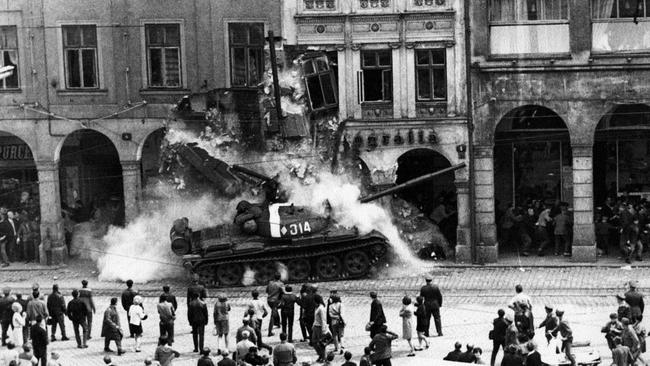
It is an opportune moment for the traditionally marginalised eastern half of the EU to amass greater influence. The bloc’s Franco-German “engine” is sputtering. Berlin has found itself on the back foot because of its dependence on Russian fossil fuels and its hesitation over dispatching heavy weaponry to Kyiv. Macron has won a second term as president but remains preoccupied with France’s internal affairs before a tricky parliamentary election next month.
Pro-European parties pursuing muscular Russia and China policies have taken power in both Slovakia and the Czech Republic since the start of last year. Their numbers may yet be swelled by Slovenia, which voted out its autocratic prime minister on the same day Macron won re-election, and Bulgaria, where Russia’s decision to cut off gas supplies has prompted the government to reconsider its previously circumspect approach to the war in Ukraine.
The question now is how long this impromptu alliance can hold together, and whether it might have a lasting impact on Brussels, shifting the EU’s approach not only on Russia but also on a broad array of questions ranging from relations with China and the defence of Europe to admitting new members to the club, such as Ukraine and some of the Balkan states.
“I think the states in east and central Europe that have pushed the EU to take a tougher stance on Russia will remain a major voice in EU foreign and security policy, not only with regard to Russia specifically but also on structural issues like the relationship between EU common security policy and Nato, and EU enlargement,” said Roger Daniel Kelemen, professor of political science at Rutgers University in Brunswick, New Jersey. “Generally they will support both a strong, continued US presence in Europe and an enlarged EU.”
Plenty of divisions remain, however. The biggest is Poland’s long-running dispute with the European Commission over what Brussels characterises as the ruling Law and Justice party’s attempts to subjugate notionally independent state institutions such as the judiciary and the Polish public broadcaster TVP.
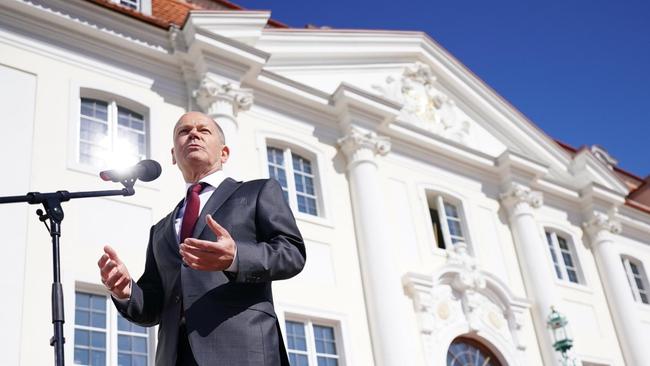
Warsaw, which insists the reforms are necessary to stamp out remnants of the country’s communist era, has made a handful of concessions on this front. The two sides are approaching something like an uneasy ceasefire in the rule-of-law hostilities for the sake of upholding the appearance of western unity. Yet Poland is still coughing up euros 1 million a day in EU fines for ignoring an order to abolish a tribunal that reins in politically awkward judges. This week the total hit euros 160 million.
Kelemen said: “The Commission is eager to reach a settlement on the rule-of-law crisis in Poland, because the optics of withholding funds and cracking down on the regime in Warsaw now are bad, with Poland hostinsg so many Ukrainian refugees and with the government playing a key role in standing up to Putin ... [but] I don’t think they’ll be able to find any real resolution so long as the government remains determined to destroy what remains of the rule of law in Poland.”
Nor do the EU’s eastern states always necessarily see eye-to-eye with one another, even on the war in Ukraine. While Poland and the Baltic states are eager to accelerate the shift away from Russian oil and gas, both Slovakia and the Czech Republic - which lean heavily on pipeline imports of oil from west Siberia - have been holding out against an EU embargo.
Estonia, Lithuania and Latvia may have aligned with central Europe on the Russia question, but commercial, political and military ties are also drawing them closer to their Scandinavian neighbours on the other side of the Baltic.
Hungary is drifting into a kind of pariah status. Viktor Orban, 58, its authoritarian prime minister, has reluctantly consented to arms deliveries across Hungarian territory, but otherwise continues to uphold his close political relationship with Putin.
Yet he remains a potentially valuable ally for Poland in its conflicts with Brussels on other fronts and has preserved his links with powerful right-wing populists in western Europe such as Matteo Salvini, the strongman leader of the League party, and Marine Le Pen in France. Some experts suggest he may ultimately be welcomed back into the eurosceptic fold.
“For the time being, Orban is really totally isolated within the [Visegrad] group,” said Krawatzek, the eastern Europe researcher at the Zois. “But you mustn’t forget that there is a fundamental affinity between Budapest and Warsaw in their critical relationship with Brussels, so they can to a certain extent choose [to work together] when it suits them. This fundamental affinity isn’t simply a thing of the past.”
The Times




